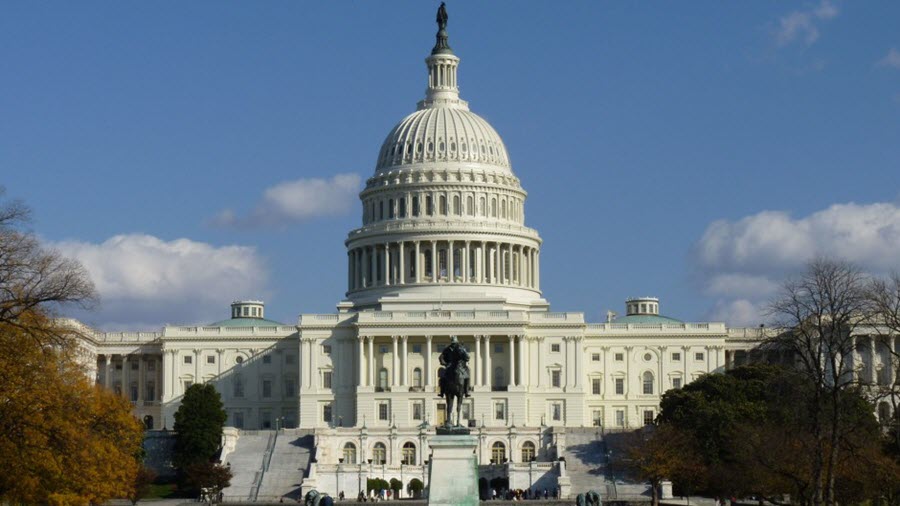Senate Kicks Off Series of Infrastructure Hearings With Focus on Broadband

The smarter way to stay on top of broadcasting and cable industry. Sign up below
You are now subscribed
Your newsletter sign-up was successful
The Senate Commerce Committee kicked off a series of infrastructure hearings Tuesday with one focused on broadband, including a big focus on collecting accurate date about where broadband is, and more importantly, isn't.
Sen. Roger Wicker (R-Miss.) presided, saying he was greatly encouraged by the President's support for programs to increase broadband infrastructure in rural areas. While the President said getting broadband to farmers was a priority, he didn't actually earmark any funds for broadband in his infrastructure plan, though he did say that $50 million would be going to rural infrastructure, with states free to use all or part of that for broadband.
Congress is currently weighing the best way to deploy that service. Democrats like to factor cost and underserved communities in the equation, while Republicans -- and ISPs -- want the money targeted to the unserved, rather than overbuilding existing private investment with public money.
Wicker said the process of identifying those unserved areas starts with collecting accurate date, something the FCC has been charged with since the Obama-era stimulus funding for a National Telecommunications & Information Administration broadband mapping program ran out in 2015, though some in Congress are trying to return that function to the NTIA with new money.
The FCC recently released a new map to help identify where broadband subsidies related to the Phase II Mobility fund should be going, but critics, including Democratic commissioner Jessica Rosenworcel, have pointed to some errors.
Wicker said it was critical to have good information so that communities that "truly lacked service" could be identified.
"Inaccurate information would only exacerbate the digital divide," he said, adding, "We don't have accurate data yet."
Related: White House Defends Lack of Direct Rural Broadband Investment
Senate Commerce Committee ranking member Sen. Bill Nelson (D-Fla.) pointed out that he and his colleagues had wanted direct investments in broadband to be part of any infrastructure plan and called the Trump proposal -- $200 billion in federal funds for all infrastructure, with $50 billion for rural, but no direct earmarks for broadband and the hope that the private sector leverages that $200 billion into a $1.5 trillion rebuild/buildout -- "simply inadequate on broadband expansion."
He signaled it was up to the Senate Commerce Committee to step up and fill that void with "critical" direct investment in broadband, something Democrats have done in their own infrastructure proposal to the tune of $40 billion.
Nelson used the hearing to put in a plug for a "reasoned discussion" about sensitive regulatory issues related to the build-out of small-cell 5G wireless broadband, including historic preservation and environmental concerns. The FCC next week is planning to vote on an order that would exempt some small-cell deployments from historic preservation and environmental reviews, something CTIA: The Wireless Association says could save $1.6 billion over the next eight years.
Nelson noted that the FCC seemed eager to, in his words, "wipe away key laws and regulations meant to protect our fellow citizens and important federal, state, local and tribal interests."
Sen Brian Schatz (D-Hawaii), ranking member of the subcommittee, warned that Democrats were unlikely to support shifting the broadband infrastructure responsibility to states and localities, or undermining labor or environmental protections.
Gary Resnick, mayor of Wilton Manors, Fla., who testified at the hearing, said that while he agreed with removing impediments to deployment of broadband, like encouraging "dig once" policies for combining road revamps with laying broadband conduit, he said that preempting state and local reviews for small cell deployment was bad policy and that such deployments would not close the digital divide. "Small cell technology is not called small because the technology is small," he said, "but because the signal covers a small area."
Steve Berry, CEO, Competitive Carriers Association, was one of those not high on the FCC's new broadband map. He said the FCC should have measured signal strength, rather than the map the FCC produced that identified the areas it thought were eligible for the USF Phase II mobility fund.
"I am very concerned that the map is so disfigured in terms of its reality on the ground that it is almost impossible to successfully challenge [it]," Berry said.
Bob DeBroux of TDS Telecom said he thought the FCC had made a good start using the data it had, and would be building the map as time goes on. He conceded that there were definitely flaws in the map, but that they could be refined and that the underlying data "is there."
The smarter way to stay on top of broadcasting and cable industry. Sign up below
